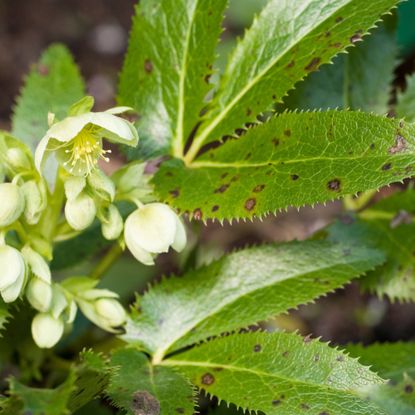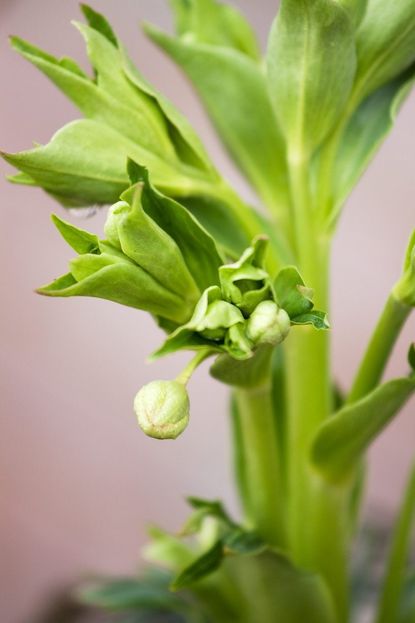Hellebore
A spot where your yard or garden has filtered or dappled sun or even constant shade is perfect for growing hellebores. With evergreen foliage and spring flowers, some hellebore varieties will bear flowers in mid-winter. Deer don't like them, but you will.
-
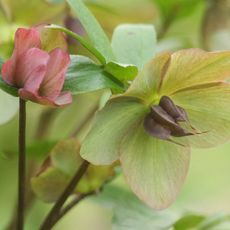
Why Is Hellebore Changing Color: Hellebore Pink To Green Color Shift
By Mary Ellen Ellis
-
What Is Hellebore Black Death: Recognizing Black Death Of Hellebores
Black Death of hellebores is a serious disease that may be mistaken with other less serious or treatable conditions. In this article, we will answer the questions: what is hellebore Black Death, what are its signs and symptoms, and what is the treatment, if any?
By Darcy Larum
-
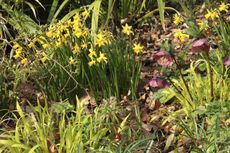
Companions For Hellebores – Learn What To Plant With Hellebores
Hellebore is a shade-loving perennial that bursts forth in rose-like blooms when the last traces of winter still have a tight grip on the garden. If you're smitten with these blooms, you may be wondering what to plant with hellebores. Click here for helpful suggestions.
By Mary H. Dyer
-
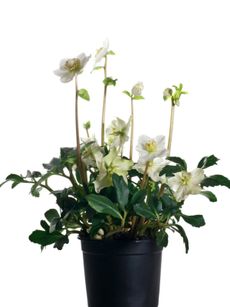
Indoor Hellebore Care – How To Grow A Hellebore Plant Indoors
While they perform best outdoors, you can trick a hellebore into blooming indoors too. Click here to learn about indoor hellebore plants.
By Bonnie L. Grant
-
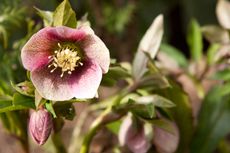
Lenten Rose Flower: Learn More About Planting Lenten Roses
Lenten rose plants are not roses at all. Instead, they look similar to a rose and are seen blooming during the Lent season. These attractive plants are easy to grow in the garden too, and this article will help.
By Nikki Tilley
-
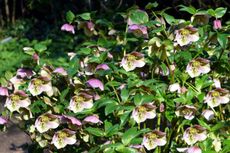
Oriental Hellebore Info – Learn About Growing Oriental Hellebore Plants
Oriental hellebores make up for all the shortcomings of the other plants in your garden, as they bloom from late winter to mid-spring, are low maintenance, tolerant of most growing conditions, and are generally pest-free and deer resistant. Find more oriental hellebore info here.
By Shelley Pierce
-
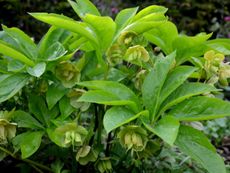
Hellebore Seed Harvest: Learn About Collecting Hellebore Seeds
If you have hellebore flowers and want more of them, it's easy to see why. These winter-hardy, shade perennials exhibit a unique beauty with their nodding, cup-shaped flowers. You will no doubt want to learn more about collecting hellebore seeds and this article will help.
By Shelley Pierce
-
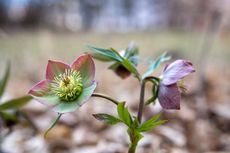
Is Hellebore Toxic – Learn About Hellebore Poisoning Of Dogs
Dog lovers frequently ask about hellebore toxicity, and with good reason. All parts of the hellebore plant are toxic, and includes all types. Hellebore poisoning has been the subject of legends involving murder, madness and witchcraft. Learn more in this article.
By Mary H. Dyer
-
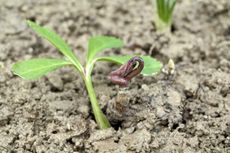
Hellebore Plant Propagation: Methods For Propagating A Hellebore Plant
Hellebore can be propagated by division or seed. Seeds may not be true to the parent and can take years to flower, but an interesting bloom may result and it is much less expensive. Learn how to propagate hellebores and which method might be best for you here.
By Bonnie L. Grant
-
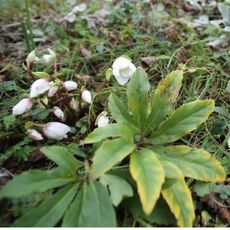
Help, My Hellebore Is Browning – Reasons For Brown Hellebore Leaves
Hellebore is a beautiful, hardy perennial flower with early spring blooms that brighten up gardens after a long winter. It is generally easy to grow and care for, but you may find that you sometimes get unattractive, brown hellebore leaves. Learn more here.
By Mary Ellen Ellis
-
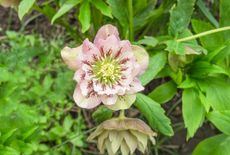
What Are Double Hellebores – Learn About Double Hellebore Varieties
The nodding habit can make hellebores barely noticeable in a shade garden full of other outstanding colorful blooms. That?s why hellebore breeders have created newer, showier double flowered hellebore varieties. Click here to learn about growing a double hellebore.
By Darcy Larum
-
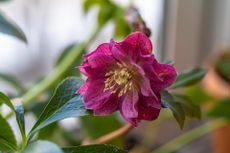
Grow A Lenten Rose For Lent: Indoor Hellebore Care During Lent
Hellebore is also known as Lenten Rose because it flowers in the spring. Read on to learnhow to gro whit early bloomer indoors.
By Tonya Barnett
-
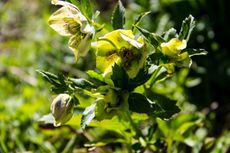
Common Hellebore Diseases – How To Treat Sick Hellebore Plants
Hellebores are usually resistant to pests and diseases. However, the term ?resistant? does not mean that hellebore is immune from experiencing problems. If you have been concerned about your sick hellebore plants, this article is for you. Click here to learn more.
By Darcy Larum
-
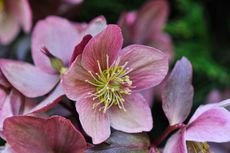
Hellebore Plant Types – Growing Different Hellebore Varieties
Hellebore varieties are numerous and include a range of colors and even double petals. This pretty little flower is a great choice for many gardens. For an extended blooming season in your garden, choose one or more of these types of hellebores found in this article.
By Mary Ellen Ellis
-
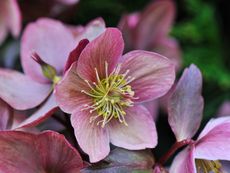
Hellebore Seed Propagation: Tips On Planting Hellebore Seeds
If you are interested in growing hellebore from seed, you need to follow a few simple tips to ensure that hellebore seed propagation is successful. You can learn how to grow hellebore from seed with information from this article.
By Teo Spengler
-
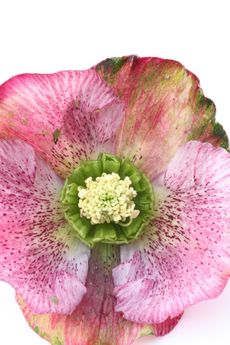
Hellebore Pest Problems: Recognizing Symptoms Of Hellebore Plant Pests
Gardeners love hellebore, so when pests of hellebore attack your plants, you?ll want to jump in to save them from harm. Click on the following article for information on different hellebore pest problems and how to recognize them.
By Teo Spengler
-
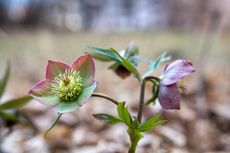
Hellebore Plant Problems: Learn About Hellebore Pests And Diseases
If you are thinking about planting hellebores, you'll want to know what you are getting into. Yes, you may have problems with hellebores, but they will be few and far between. And hellebore plant problems can usually be solved with a little attention and care found here.
By Teo Spengler
